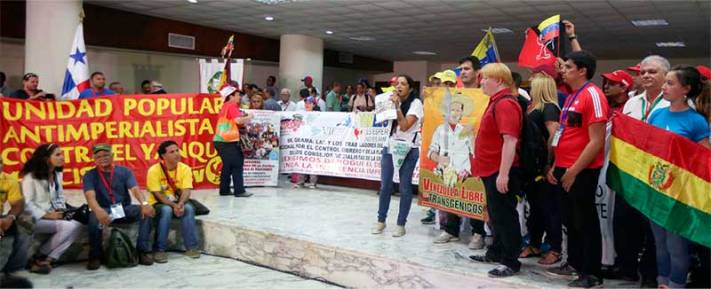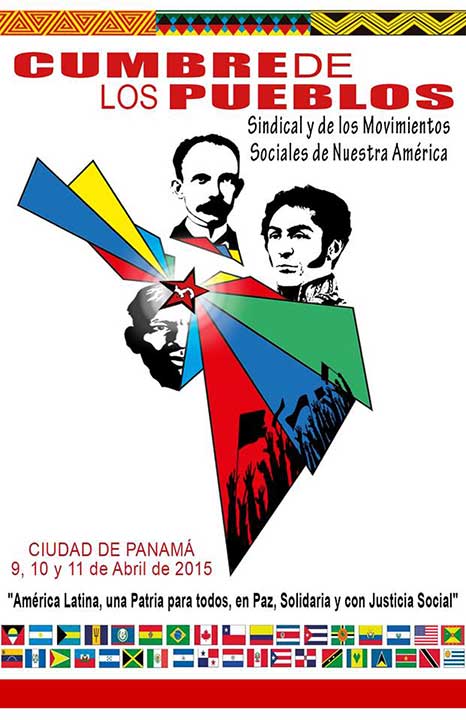Report by CC CPRF Chairman Gennady Zyuganov to the March 2015 Plenary Session of the CC
Dear comrades,
It will shortly be 100 years since the greatest event of the 20th
century and the whole history of humankind. Its significance was
succinctly expressed by the words of Joseph Stalin: “The October
Revolution inflicted on world capitalism a deadly wound from which it
will never recover… This is precisely why capitalism will never regain
the ‘balance’ and ‘stability’ that it had before the October
Revolution.”
The anniversary of the Great
October Socialist Revolution is an excellent opportunity to remember its
significance, to highlight the achievements of the socialist system and
of course to mobilize forces in the fight for the triumph of the
brightest ideals of the working people.
We should start a massive
campaign to prepare for the centenary of that epoch-making event. It is
equally important to verify our historical experience against the tasks
of the party which is the heir to the October Revolution. The
characteristic features of the first victorious proletarian revolution
are of enormous significance. Therefore this is just the right time to
remind people of these features without leaving out of sight those
facets of the Revolution that we are coming to see in a different light.
Their knowledge and understanding will prepare the Party better for the
class battles for peace, genuine democracy, human rights and dignity.
Prerequisites of the Great Revolution
The socialist revolution in
Russia did not occur spontaneously, on the off-chance or all of a
sudden. Vladimir Lenin proved that it was inevitable relying on the
wealth of theory whose foundation was laid by Karl Marx and Friedrich
Engels. In practice the victory of the Revolution was prepared by the
Leninist Party whose stainless weapon was Bolshevism.
The greatest discovery made by Lenin was that capitalism had morphed into a new and higher stage, imperialism. Free
competition was replaced by monopolies. The merger of banking and
industrial capital produced financial capital. Export of capital came to
exceed the export of goods. The colonial division of the world was
completed.
Capitalist competition remained and
inevitably resulted in uneven development of various countries. Under
imperialism this created a situation when the world became a single
chain of capitalism and the division of markets signified a re-division
of a world that had already been divided. Lenin then went on to draw the
second important conclusion: under imperialism there inevitably is a weak link in the capitalist chain. The imperialist predators seek to strengthen their positions at its expense.
The chain of capitalism can be broken in its weakest link. In
that link capital may or may not be able to withstand the onslaught of
the proletarian forces. This led the founder of Bolshevism to the third
outstanding discovery: under imperialism the socialist revolution may initially triumph just in several countries or even in one country.
Profound analysis convinced Lenin that the weakest link in the chain of imperialism was the Russian Empire and that Russia could become the birthplace of the socialist revolution. First, the country was pregnant with revolution even before it passed on to the imperialist stage. Back in 1875 Friedrich Engels wrote: “Russia
is undoubtedly on the eve of a revolution… It will destroy at one blow
the last and still untouched reserve of reaction in the whole of
Europe.”
Secondly, the First Russian Revolution
had ended in defeat. The contradictions that it had failed to resolve
remained and needed to be resolved.
And thirdly, in the early 20th
century the centre of the world revolutionary process moved from
Germany to Russia. This was noted for example, by Karl Kautsky who at
the time was still a staunch Marxist.
Russia represented a tangle of acute contradictions. The
contradiction between the proletariat and the bourgeoisie, between the
Tsarist feudal superstructure and the alliance of the bourgeoisie and
the liberal land owners, between land owners and the peasantry. Between
the kulaks (rich peasants), middle-level and poor peasants in the midst
of the peasantry, the most numerous class in Russia. Superimposed on
these contradictions were: those between the rural bourgeoisie and the
rural community. The land and nationalities problems had come to a head.
There were contradictions between regions and religions. There was
growing antagonism between town and countryside.
The World War aggravated all these
social contradictions and added some new antagonisms. The sense that the
revolution was imminent became all-pervading. “The year 1916 is approaching in a crown of thorns,” wrote Vladimir Mayakovsky. We find similar motives in the work of Alexander Blok and other poets and writers.




























































.jpg)








